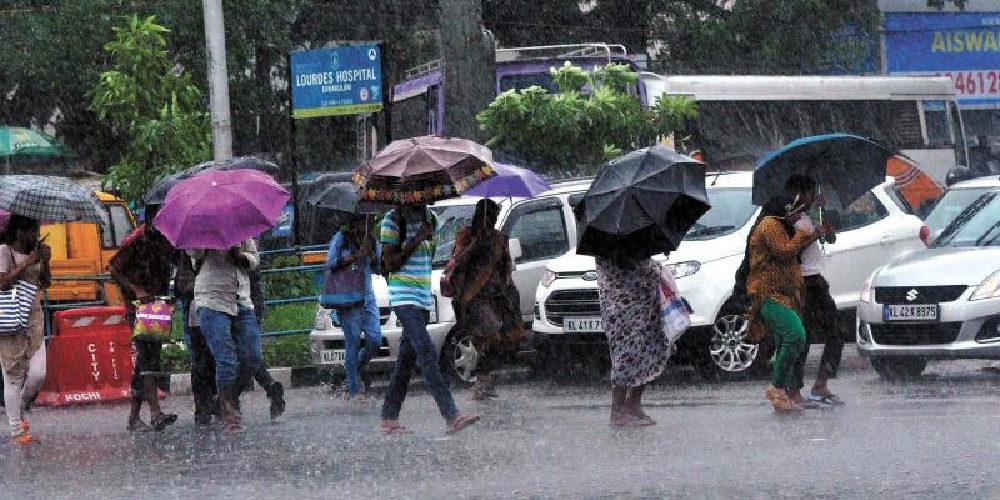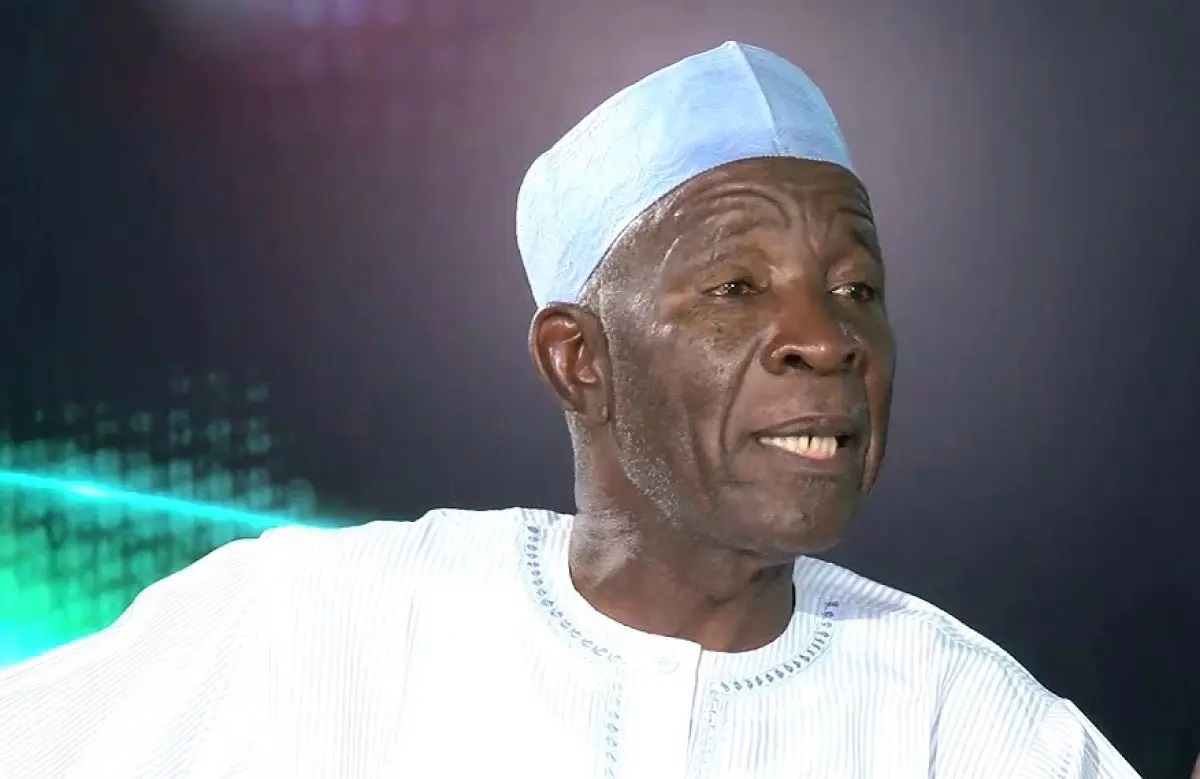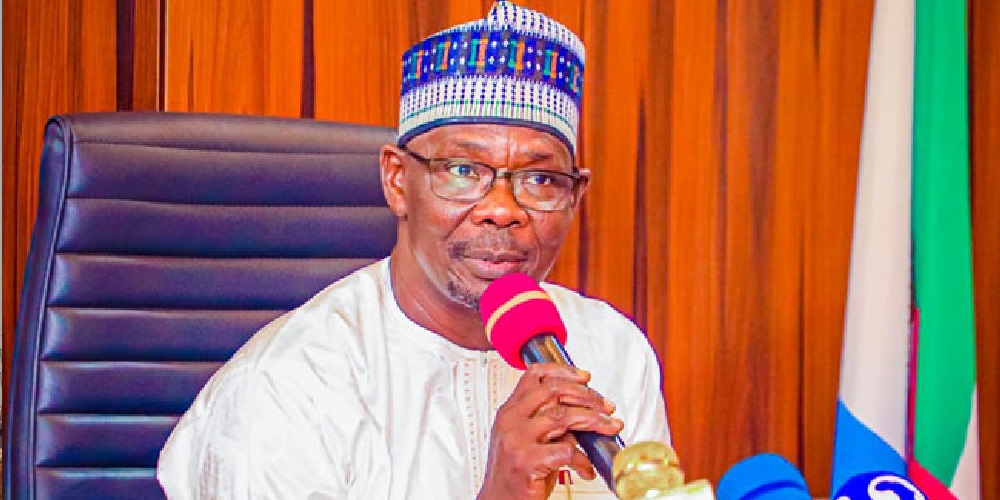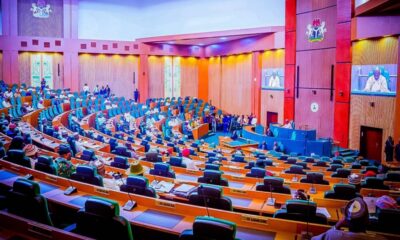News
Eight ways to stay safe during rainy season

The rainy season can be pleasant sometimes; the cool weather, the perfect time to drink a cup of hot tea or coffee, a reason to wear coats and turtlenecks, enjoy snuggle time with loved ones but can also be irritating as it comes with illnesses such as flu, common cold, fever, malaria and others.
To stay safe during this period, there are some simple tips to adopt.
Here are the eight ways to stay safe during rains:
1. DRIVE SLOWLY AND CAREFULLY
Road accidents are quite common during the monsoon season, which is why drivers need to practice extreme caution in this weather. Since wet tarmac can become rather slippery, it is advised to avoid speeding and tailgating (closely following the car in front of you). If the vehicle behind you is tailgating, make sure to put some distance between the two. Avoid making any sudden turns as well.
Moreover, be wary of riding motorcycles while it’s raining, as they tend to slip and fall rather easily on wet roads. If you drive a car, be careful of bikers around you.
2. WASH YOUR HANDS REGULARLY
To keep you from getting a cold, cough and flu, regular hand washing is necessary to prevent the spread of viruses and bacteria. Bacterias and viruses come alive during the rainy season and you can come in contact with them anywhere.
Wash your hands as often as you can with soap and water. It is also advisable to carry a pocket-sized hand sanitiser with you when you go out.
It is important to wash your feet and hands when you get home, especially after contact with rain or flood.
3. BE A WEATHER CONSCIOUS PERSON
You need to stay up to date with the latest news on weather and weather forecasts to avoid going out when there will be a heavy downpour. You can monitor the weather through Radio,TV and the internet.
Follow accounts that share useful information about weather and traffic updates, which might help you to get rid of flooded areas and find alternate routes.
4. AVOID TOUCHING ELECTRIC POLES AND WIRES
Staying away from electric poles and wires is one of the most important safety measures for the rainy season. Do not touch wires that have fallen due to heavy rain or are dangling precariously from the pole.
If you see wires lying in a puddle of water after rain, stay away from it as far as possible since stepping in it can possibly electrocute you.
5. KEEP MOSQUITOES AWAY
Rainy season is the perfect breeding season for mosquitoes. They lay their eggs in pools of stagnant water so you must make sure to sweep away any stagnant water that is around you.
Mosquito repellent spray should be used in the house, burning mosquito coils as well to keep the insects away.
When you need to go outside, wear long sleeved shirts and rub mosquito repellent cream on your arms and legs. Use mosquito nets around your bed too.
6. STAY WARM
It is usually cold outside when it rains, so wear warm clothes to keep your body temperature up.
Cardigans, sweaters, turtlenecks and coats should be part of clothing during this season. They help you stay warm and avoid catching a cold.
Remember to stay out of the rain too if you can.
7. TAKE A HOT SHOWER
Taking a shower after getting drenched in the rain might sound absurd, however taking a hot shower will help raise your body temperature and also get rid of the germs and protect you from many infections. But If you don’t feel like having a shower, try soaking your feet in warm water.
8. AVOID GETTING SOAKED IN THE RAIN
Make sure to always carry an umbrella and rain coat to avoid getting soaked from a sudden downpour. Getting soaked in the rain can cause flu, cold, cough and other rain causing illnesses.
Rain gear such as umbrellas, rain coats, rubber boots helps to protect you from getting soaked and shields you against cold or fever.
Wearing rubber boots is advisable to protect yourself against possible viruses and germs that could be in the water.
News
APC is working to sabotage NNPP, Kano gov’t – Buba Galadima alleges

A chieftain of the New Nigeria Peoples Party, NNPP, Buba Galadima, has stated that the All Progressives Congress, APC, was out to destroy the NNPP. Galadima also said that former Kaduna State governor, Nasir El-Rufai, is merely a representative of Atiku Abubakar within the Social Democratic Party (SDP).
Galadima warned Atiku not to contest for the presidency again in 2027, saying such a move would further complicate Nigeria’s political scene. He accused the APC-led government of attempting to destabilize the NNPP and the Kano State government, saying all efforts to lure their members would fail.
According to Galadima, the federal government is using security agencies to suppress the NNPP-led administration in Kano. He rejected the claim that the NNPP is working with the APC.
In an interview in Kano, Galadima expressed concern about Atiku’s reported interest in contesting again in 2027, arguing that it would not benefit Nigerians.
He added that El-Rufai is not fit to lead the opposition, stating that the public would not accept him due to past betrayals. He accused El-Rufai of betraying Atiku Abubakar, Olusegun Obasanjo, and others, saying no one would trust him as a political leader.
Galadima emphasized that El-Rufai is not a party founder but is only being used temporarily to hold the SDP for someone else to take over later.
He further accused the APC of deliberately trying to collapse the NNPP government in Kano by offering large sums of money and positions to politicians to switch loyalties. However, he said the plan would not work, as the people of Kano are aware and committed to the party that has brought them development.
On claims that Kwankwaso is supporting Tinubu’s government, Galadima dismissed them as false, reiterating that it is actually the APC that is trying to break the NNPP.
He described Kwankwaso as the most popular politician among the masses in Nigeria, saying no one else enjoys the same level of grassroots support.
Galadima said President Bola Tinubu is his friend, but warned him that trying to destroy the opposition will not bring him political success.
News
Nigeria Not Drifting to One Party State – Gov Sule

Nasarawa State Governor Abdullahi Sule has dismissed mounting speculation that Nigeria may be drifting towards a one-party state, asserting that the ruling All Progressives Congress, APC, is merely gaining momentum due to its performance and reform-driven leadership under President Bola Tinubu.
Speaking to journalists at the State House following a meeting with the President, Governor Sule emphasised that dominance by a single political party does not equate to the demise of political pluralism.
“There is no way we can be a one-party state. No matter what happens, there are people who are going to be in another party. Actually, we don’t even want Nigeria to be a one-party state, we just want to be the dominant party,” he declared.
Sule acknowledged the APC’s growing appeal across the country, attributing it to tangible reforms implemented by President Tinubu in various sectors, particularly the economy and agriculture.
He contended that Nigerians returning to APC or defecting from opposition parties were doing so not under political pressure, but because they were inspired by the administration’s policies and accomplishments.
According to him, “It’s a reflection of the performance of our party and the performance of Mr. President. We’ve seen reforms in the unification of exchange rates, the removal of fuel subsidies, and now in the power sector. What is even more impressive is the focus on skill acquisition and agriculture. These are real reforms that matter to the people.”
Governor Sule underscored that in a democracy, all political parties aspire to be dominant and to win elections, but this does not negate the presence or potential of other parties.
News
Tinubu presents N1.78 trillion FCT budget to NASS

President Bola Ahmed Tinubu has presented a budget of N1, 783,823,708,309 as the 2025 budget of the Federal Capital Territory (FCT) to the National Assembly for consideration and passage.
In a letter from the President read on the floor by the Speaker, Abbas Tajudeen, the President said the budget presentation to the National Assembly was in line with the provisions of section 299 of the Constitution, which vests the legislative function of the FCT on the National Assembly.
He said the budget will prioritise investment in health, job creation, social welfare, increase agricultural production and capital development.
According to him, 85 percent of the capital component of the budget will be dedicated to completing ongoing projects, while the remaining 15 percent will go for new projects.
He appealed to the lawmakers to expedite action in the passage of the budget.
-

 Opinion15 hours ago
Opinion15 hours agoRIVERS, WIKE, FUBARA, AND THE WAY FORWARD
-

 Politics14 hours ago
Politics14 hours agoJust in: Delta PDP Reps members defect to APC
-

 News19 hours ago
News19 hours agoVDM may be released on Tuesday
-

 News16 hours ago
News16 hours agoNANS Barricades Lagos-Ibadan Expressway Over Alleged NELFUND Mismanagement
-

 News16 hours ago
News16 hours agoCourt bans Nnamdi Kanu’s in-law from 3 proceedings over live streaming
-

 News12 hours ago
News12 hours agoTension As Lawmakers Warns of Public Revolt Over Insecurity
-

 News11 hours ago
News11 hours agoEdo Speaker, Two Other Lawmakers, Formally Join APC
-

 News22 hours ago
News22 hours agoNASS Expected To Tackle Security Challenges Upon Resumption—-Nnamchi





